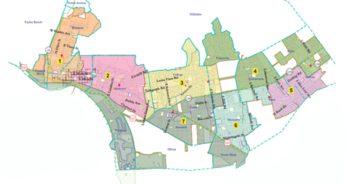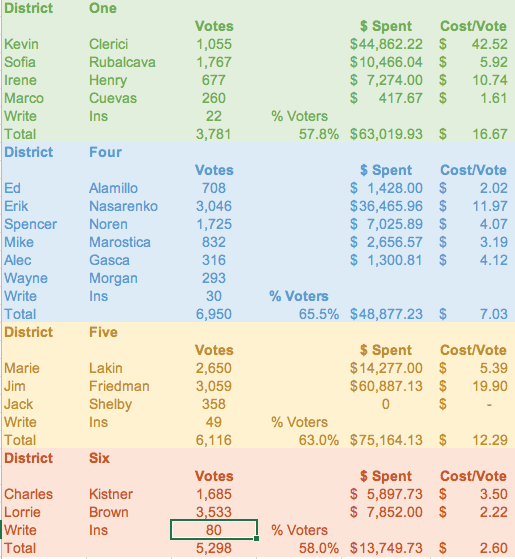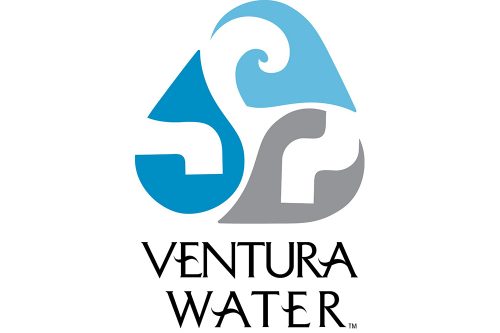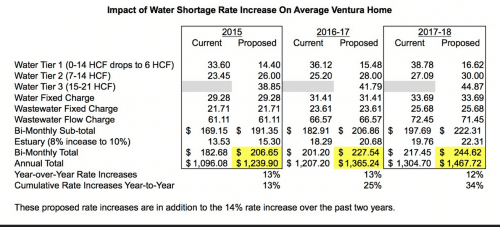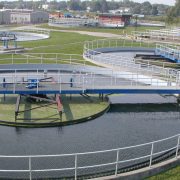The New Ventura Water Rate Increase Will Effectively Cost You 43% More

“To sin by silence, when they should protest, makes cowards of men.”
—Ella Wheeler Wilcox
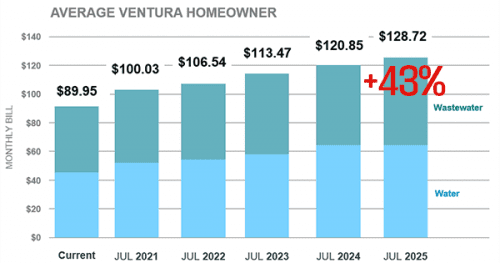
Decisions made by past and present City Councils led to Ventura Water increasing water rates by 7% and wastewater rates by 6% for each year over the next four years. Extrapolated out, the water rate increase for the “average” ratepayer will grow 43% during that time.
The current City Council and Ventura Water want to convince you we need the increases. They began the process by including a brochure in your latest water bill explaining why they propose increasing rates.
If You Don’t Protest, You Vote “Yes” Automatically
 Ventura is obliged under Proposition 218 to allow ratepayers to protest the rate increases. Yet, Ventura Water doesn’t make it easy to do so. The protest form is intentionally challenging to locate. In the 8-page Ventura Water ‘Proposed Rate Adjustments’ document, Ventura Water buries the protest procedure on the last page. It is not bolded or highlighted to stand out to the reader. The protest format is not user-friendly. There is little explanation on how to complete the form, making it confusing to property owners.
Ventura is obliged under Proposition 218 to allow ratepayers to protest the rate increases. Yet, Ventura Water doesn’t make it easy to do so. The protest form is intentionally challenging to locate. In the 8-page Ventura Water ‘Proposed Rate Adjustments’ document, Ventura Water buries the protest procedure on the last page. It is not bolded or highlighted to stand out to the reader. The protest format is not user-friendly. There is little explanation on how to complete the form, making it confusing to property owners.
VREG has written before about how unfair filing a protest under Prop 218 is in Ventura. While Ventura does what is minimally required to be legal, the way objections are structured limits public complaints and makes it nearly impossible for voters to overturn any rate increase. In no way does Ventura’s protest procedure truly measure the public’s intent to tax themselves further.
The notice explains that the city will hold public hearings on April 19, 2021 and April 28, 2021.
If you oppose this increase, Ventura Water’s notice states that the parcel owner, or customer of record on the water bill, must file a written protest with the City Clerk at City Hall.
Where To Get Your Rate Increase Protest Form
 The City did not enclose a protest form with the rate increase notice. Instead, the brochure directs you to go online. You can find the Water Shortage Rate Protest form here. You can complete the form online, but you must print it for it to count.
The City did not enclose a protest form with the rate increase notice. Instead, the brochure directs you to go online. You can find the Water Shortage Rate Protest form here. You can complete the form online, but you must print it for it to count.
Written protests may be submitted by mail to the Ventura City Clerk’s Office at 501 Poli Street (Room 204) Ventura, California 93001, or in person at the drop box near the back entrance of City Hall at 501 Poli Street, Ventura, California 93001 (parking lot behind City Hall). City Hall is currently closed to the public due to the novel coronavirus (COVID-19) pandemic. All mailed written protests must be received (not postmarked) by the City Clerk no later than May 17, 2021, at 5:00 pm.
To prevent the rate increase, most property owners (51%) must file a protest. Renters have no right to protest. Business owners have no right to protest. Only the 32,000 people that own property with water meters have a right to vote. The remaining 81,000 people in the City of Ventura are effectively disenfranchised. They have no vote but will have to pay.
Why Is Ventura Raising Rates?
Ventura Water Department justifies the rate increase by saying we must “control our water and wastewater,” and Ventura Water does not “trust” other agencies to help do that.
 Instead, Ventura Water plans to build a $240 million wastewater treatment plant that will duplicate facilities that already exist near Ventura. The 2019 Corollo Report (commissioned by Ventura Water), titled Ventura Water Supply Projects and Alternatives, states that if Ventura Water utilizes the United Water Conservation and the Oxnard Water Treatment Plant, they would not need to build a separate treatment plant. The cost savings to Ventura ratepayers could be enormous.
Instead, Ventura Water plans to build a $240 million wastewater treatment plant that will duplicate facilities that already exist near Ventura. The 2019 Corollo Report (commissioned by Ventura Water), titled Ventura Water Supply Projects and Alternatives, states that if Ventura Water utilizes the United Water Conservation and the Oxnard Water Treatment Plant, they would not need to build a separate treatment plant. The cost savings to Ventura ratepayers could be enormous.
Ventura Water neglects to mention that Ventura Water must rely on and co-exist with outside agencies like United Water and Casitas Water already. Also, soon Ventura Water will be working with the management of the State Water project to deliver water to the city.
The ‘lack of control and trust’ Ventura Water purports to be why it’s not cooperating with other water agencies is absurd. It’s already working with several other agencies and depends upon many other outside agencies for water resources.
The Unspoken Motivation Behind The New Plant
This City Council, and past ones, has accepted Ventura Water Department’s recommendations for a new processing plant called VenturaWaterPure without profound skepticism. Ventura Water has a massive conflict of interest (getting a new facility built and employing another 27 employees – Corollo Report 2019). Yet, the City Council seems oblivious. People may deny it, but governments measure their success in part by budget and staff size. Why would anyone think that the Ventura Water Department is any different?
Why Is The City Council Reluctant To Change?
The City Council fears that any redirection from building their facility will delay complying with the Wishtoyo Consent Agreement and result in substantial legal penalties. By extending the Consent Agreement deadline and utilizing the existing facilities at United and Oxnard, Ventura could produce a faster result.
Editors Comments On The Rate Increases
If we continue down this path, Ventura ratepayers will pay more than may be needed. Ventura Water has put the price tag on “control” and “trust.” It’s $200 million.
We’ve said repeatedly, at the very least, the Ventura City Council should:
- Call for an accurate, independent, cost analysis that could result in potential savings of $200 million
- Delay any rate increase to Wastewater rates
- Direct the City attorney to apply for a deadline extension on the Wishtoyo Consent Agreement to provide more time to find the optimal solution while avoiding substantial legal penalties
- Open negations with United Water and the City of Oxnard to utilize a wastewater treatment process.
Our current path is misguided and needs reevaluation. Whenever a financial decision boils down to “control,” the issue is power and prestige, not what’s best for the public.
Protest Your City Councilmembers’ Water Rate Increase
Below you’ll find the photos of our current City Council. Click on any Councilmember’s photo and you’ll open your email program ready to write directly to that Councilmember.
 |
 |
|
 |
 |
|
 |
 |
|
 |
For more information like this, subscribe to our newsletter, Res Publica. Click here to enter your name and email address.

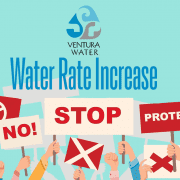
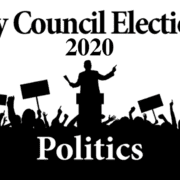


 Candidates for the 2020 City Council election must concentrate on the Wishtoyo Consent Decree, and the impact of the decree in the next decade. That Federal Decree requires Ventura to stop putting a majority of its treated wastewater into the Santa Clara River estuary, beginning in January 2025 through 2030. To do so will be an enormous cost to the city.
Candidates for the 2020 City Council election must concentrate on the Wishtoyo Consent Decree, and the impact of the decree in the next decade. That Federal Decree requires Ventura to stop putting a majority of its treated wastewater into the Santa Clara River estuary, beginning in January 2025 through 2030. To do so will be an enormous cost to the city. Ventura Water has confused the City Council by combining two different ideas to falsely heighten the urgency to drink wastewater. In 2011, Venturans were told, “We are short of water.” Ventura Water proposed treating the wastewater we currently dump into the Santa Clara River into potable water at the cost of $1 Billion.
Ventura Water has confused the City Council by combining two different ideas to falsely heighten the urgency to drink wastewater. In 2011, Venturans were told, “We are short of water.” Ventura Water proposed treating the wastewater we currently dump into the Santa Clara River into potable water at the cost of $1 Billion. 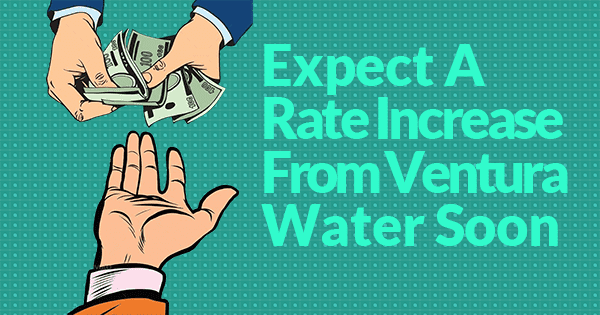 Ventura Water will undoubtedly request a water rate increase from this next City Council. They will claim the money is for VenturaWaterPure or to improve the city’s water infrastructure. Water rates already went up by $220 million with water and wastewater increases in 2012-13. Any Councilmember and any candidate for City Council should be able to explain how Ventura Water spent the $220 million and why another rate hike is needed.
Ventura Water will undoubtedly request a water rate increase from this next City Council. They will claim the money is for VenturaWaterPure or to improve the city’s water infrastructure. Water rates already went up by $220 million with water and wastewater increases in 2012-13. Any Councilmember and any candidate for City Council should be able to explain how Ventura Water spent the $220 million and why another rate hike is needed. Ventura has 555 homeless people, according to the 2019 Point-in-Time count. Meredith Hart, Director of Ventura’s Safe & Clean program, believes the 2020 count will be higher. Ventura spends on its homeless are between $3.89-$4.59M per year.
Ventura has 555 homeless people, according to the 2019 Point-in-Time count. Meredith Hart, Director of Ventura’s Safe & Clean program, believes the 2020 count will be higher. Ventura spends on its homeless are between $3.89-$4.59M per year.